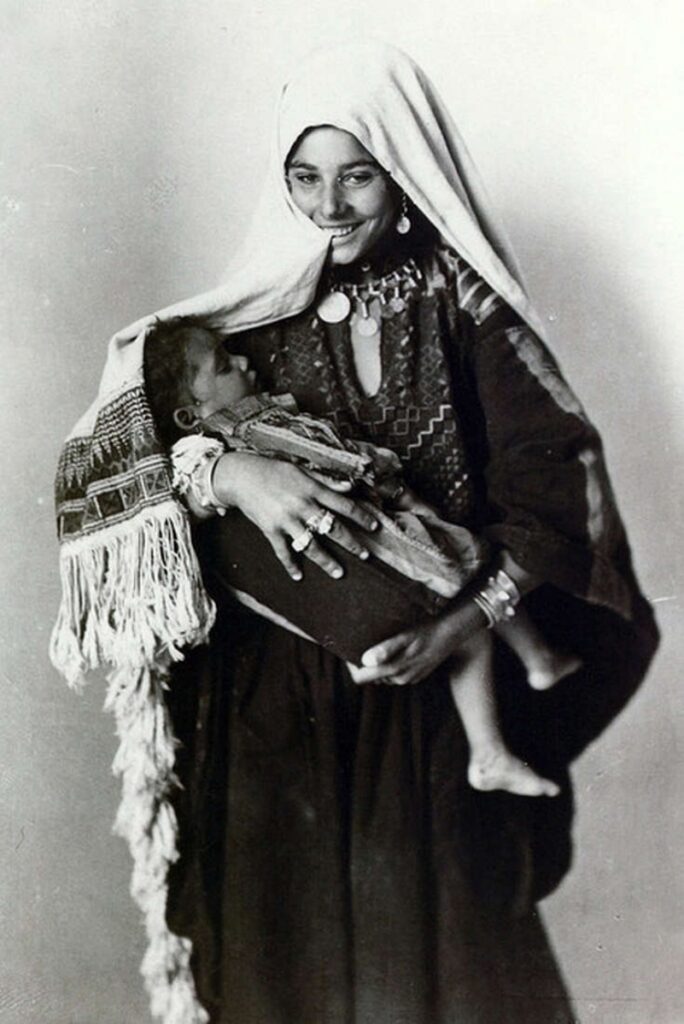Palestinian Childhood During the British Mandate

By Janette Habashi / Arab America Contributing Writer
There is little documentation about Palestinian lives during the British Mandate, specifically about children. It is urgent to collect individual accounts and narratives about our grandparents during this era. The void in Palestinian historical accounts from the British Mandate era allows for misinformation and manipulation of events. For this reason, I started interviewing, over the last 3 years, Palestinians over 75+ years old in Palestine and the diaspora to document their childhood during the British Mandate. These interviews provide oral historical accounts of Palestinian childhood, allowing for an expansion of research on this very little-studied topic.
In the summer of 2022, I interviewed around 25 individuals in the West Bank. The next year, in the summer of 2023, I interviewed Palestinians who live in Israel, the West Bank, and Jordan. The oral histories I recorded from these interviews expressed diverse or multi-experiences of childhood. One interview explained how, as a child, he helped his parents classify the oranges in a village close to Jafah. Oranges with thick skin and a pedicel are designated for export. Oranges with thick skin and without a pedicel are for export but cannot go far away. The rest of the oranges are allocated for local markets.
Though this interview discussed agriculture and village life, another interview described his father working in the music industry. Some of their performances were broadcast on the BBC radio. Also, his family used to take the buses to perform from Yafa, Haifa, and Jerusalem. I did a separate interview with a female who described the mistake a midwife and the village chief made with her name. This resulted in having two names, and every time she had a life-changing event; she had to go to court and swear that she was the same person. These are only snapshots of historical accounts but were filled with rich stories and joyful experiences.
I hope to continue collecting oral histories this year, 2024, by interviewing Palestinians in the diaspora. I have 15 individuals committed to sit and talk about their childhood. I met a medical doctor who is 92 years old and is still practicing. He has a sound memory of his village close to Jerusalem and his childhood, including his teachers, classmates, streets in the village, and much more. He is excited to share his childhood memories and community narrative. Additionally, I have the opportunity to interview a female doctor who graduated with her MD in 1957, and she has fond memories of her family’s support in her education.
Another interview I hope to complete in a few weeks is with an individual (65+ years old) whose parents lived their childhood in a Palestinian village. Though his childhood was not in this village, he describes his parents’ childhood, the plants and trees, how people interacted, and much more as if he were shadowing his father. This individual is not only the keeper of the family narrative but also is an example of the father’s commitment to keeping the Palestinian childhood story alive.
Other potential interviews describe their childhood in terms of family support and constraints of resources, which provide holistic pictures of Palestinian childhood. It is very important to document diverse childhood experiences as 70% of the population lived in rural areas, and only 30% of children during the early 1940s finished 4th grade in public schools (the highest it had ever been), noting that the British government established only 2 public high schools. The British Mandate did not build an educational infrastructure that supported all children in Palestine. Therefore, the more we know about Palestinian childhood, the more accurate data we can analyze and document.
I find conducting the interviews rewarding, and I am more than eager to document and share Palestinian life during the British Mandate to include it in an online archive. With each interview I complete, I realize that I need to do more, and I am reaching out to support his collection by allowing me to interview your parents, grandparents, loved ones, or anyone who keeps family childhood narratives who lives in the US or anywhere. Please contact me at palchildhoodbm@ou.edu to educate people about Palestinian life before Nabka.
Check out our Blog here!









